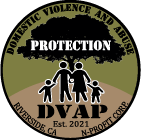Domestic violence and abuse impact individuals from all walks of life, but survivors with disabilities often face unique challenges and risks. For those in Riverside, California, it’s critical to have access to tailored resources, guidance, and support for creating an effective safety plan. This guide offers practical steps and strategies designed to empower individuals, provide clarity, and ensure safety for survivors with disabilities and their loved ones.
Understanding the Specific Risks Survivors with Disabilities Face
Survivors with disabilities may face heightened vulnerability due to physical, sensory, or cognitive limitations. Abusers may use these vulnerabilities as tools of control, such as withholding medications, mobility aids, or communication devices. Survivors may also confront external barriers, such as inaccessible shelters or a lack of trained professionals who understand their specific needs. These factors make it vital to address these risks in a personalized safety plan.
Additionally, societal attitudes, stigma, and isolation can further complicate reaching out for help. Survivors may fear not being believed or may worry that disclosing abuse will lead to losing independence. Understanding these risks is a critical first step in creating effective protection measures.
Adapting Safety Plans for Mobility or Sensory Limitations
For survivors with disabilities, safety strategies need to account for mobility or sensory challenges. For example:
- Mobility Limitations
Ensure your safety plan includes accessible escape routes from your home or workplace. Practice these routes in advance with assistance if necessary. Arrange for reliable transportation that accommodates mobility aids like wheelchairs or walkers.
- Hearing or Vision Impairments
Develop nonverbal signals or visual cues to communicate with trusted individuals in emergencies. Consider devices that provide alerts through vibrations or flashing lights for critical warnings.
- Cognitive or Memory Limitations
Simplify steps and keep essential information written down in an easy-to-understand format. Collaborate with a trusted advocate or support person to identify risks and appropriate responses.
Accessible Shelter Options and Legal Protections
Finding accessible shelters in Riverside is crucial for survivors. Many organizations in the region, such as confidential shelters and transitional housing programs, now prioritize accommodations for disabilities. Look for shelters with ramps, elevators, accessible bathrooms, and staff trained in disability awareness.
Survivors should also be aware of their legal rights. California law provides strong protections for individuals with disabilities experiencing domestic violence, including the right to reasonable accommodations under the Americans with Disabilities Act (ADA). If you need a restraining order, advocate for access to courtrooms and paperwork processes that accommodate your needs.
Tools and Technology That Can Assist
Advancements in technology can play a vital role in keeping survivors with disabilities safe. Some helpful tools include:
- Emergency Alert Systems
Devices like personal emergency response systems (PERS) can allow survivors to notify authorities or trusted contacts quickly. These devices may include wearable buttons or smartphone-based solutions.
- Safety Apps
Mobile apps designed for domestic violence survivors provide features like discreet communication, location sharing, or immediate connections to support hotlines.
- Assistive Technology
For survivors with sensory impairments, voice-activated assistants, text-to-speech solutions, or vibrating alert devices can provide a lifeline in emergencies.
Resources Available in Riverside, California
Riverside offers a range of services to support survivors with disabilities. Organizations such as domestic violence shelters, counseling centers, and disability advocacy groups collaborate to provide comprehensive assistance. Key resources to consider include:
- Shelters
Contact facilities such as Alternatives to Domestic Violence (ADV) in Riverside for accessible, secure housing.
- Legal Aid
Riverside’s Inland Counties Legal Services (ICLS) provides disability and domestic violence-focused legal assistance.
- Advocacy and Support
Reach out to the Riverside County Office on Aging or organizations like the Disability Rights California office for connections to community resources.
Are You Experiencing Domestic Violence or Abuse? DVAP Is Here To Help
You are not alone, and you deserve support. Domestic Violence and Abuse Protection, Inc. (DVAP) is here to champion your safety and well-being. When restraining orders and conventional measures fall short, our team steps in to provide unwavering protection.
Located at 3900 Orange St., Riverside, CA, DVAP is ready to help 24 hours a day. Call us now at (951)-275-8301 or email us at admin@dvapriverside.org. Take the first step toward a safer future today.






